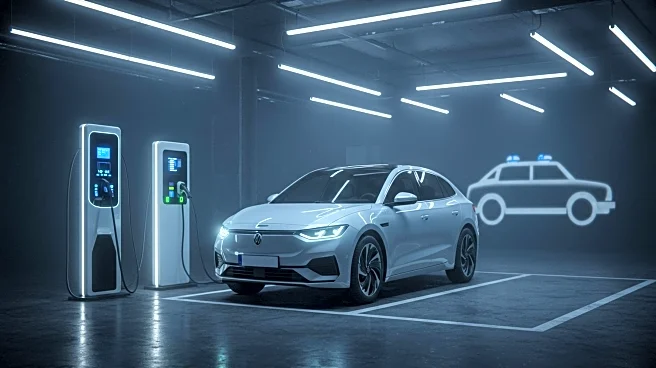What's Happening?
South Africa, as the largest automotive manufacturing hub in Africa, is grappling with the challenges of transitioning to electric transport. The country assembles vehicles for major brands such as Toyota, Volkswagen, BMW, and Ford. Despite this, the continent produces less than 1% of the world's new vehicles, with a significant portion of the fleet consisting of used imports from Europe, Japan, and North America. The electrification of transport is hindered by unreliable electricity supply, with around 600 million Africans lacking access to electricity. However, the growth of solar mini-grids and off-grid solutions offers a potential pathway for electrification, particularly for electric two- and three-wheelers, which have smaller energy demands.
Why It's Important?
The transition to electric transport in South Africa and the broader African continent is crucial for reducing reliance on fossil fuels and addressing environmental concerns. The shift could lead to significant economic benefits by reducing fuel imports, which consume large portions of foreign exchange reserves. Moreover, the adoption of electric vehicles (EVs) could stimulate local manufacturing and innovation, particularly in the electric two-wheeler segment, where startups are actively developing solutions. However, affordability remains a challenge, as electric vehicles are currently beyond the reach of most consumers, and financing options are limited.
What's Next?
The future of electric transport in Africa will likely involve a focus on electric motorcycles, three-wheelers, and public transport segments, which are easier to electrify and offer faster payback in fuel savings. As costs fall and business models mature, new buyers could enter the market directly into electric mobility. The trajectory of electrification will depend on policy support, investment, and market readiness, with some nations potentially leapfrogging ahead due to favorable conditions. By 2040, electric two-wheelers could dominate new sales in many African cities, with significant shares of public bus fleets also becoming electric.
Beyond the Headlines
The transition to electric transport in Africa is not just a technological shift but also a socio-economic transformation. It presents opportunities to leapfrog traditional internal combustion engine infrastructure, particularly in regions with low vehicle ownership. The interplay between energy transformation and transport needs will be critical in determining the success of this transition. The potential for renewable energy, such as solar power, to support electrification is vast, and could lead to cleaner, more efficient mobility across the continent.









